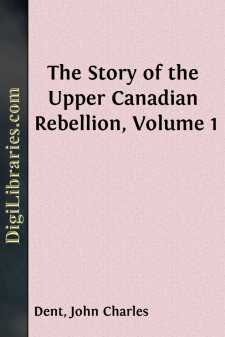Categories
- Antiques & Collectibles 13
- Architecture 36
- Art 48
- Bibles 22
- Biography & Autobiography 816
- Body, Mind & Spirit 145
- Business & Economics 28
- Children's Books 18
- Children's Fiction 14
- Computers 4
- Cooking 94
- Crafts & Hobbies 4
- Drama 346
- Education 58
- Family & Relationships 59
- Fiction 11831
- Foreign Language Study 3
- Games 19
- Gardening 17
- Health & Fitness 34
- History 1378
- House & Home 1
- Humor 147
- Juvenile Fiction 1873
- Juvenile Nonfiction 202
- Language Arts & Disciplines 89
- Law 16
- Literary Collections 686
- Literary Criticism 179
- Mathematics 13
- Medical 41
- Music 40
- Nature 179
- Non-Classifiable 1768
- Performing Arts 7
- Periodicals 1453
- Philosophy 66
- Photography 2
- Poetry 897
- Political Science 203
- Psychology 45
- Reference 154
- Religion 516
- Science 126
- Self-Help 86
- Social Science 82
- Sports & Recreation 34
- Study Aids 3
- Technology & Engineering 59
- Transportation 23
- Travel 463
- True Crime 29
Our website is made possible by displaying online advertisements to our visitors.
Please consider supporting us by disabling your ad blocker.
Canadian Notabilities, Volume 1
Description:
Excerpt
JOSEPH BRANT—THAYENDANEGEA.
Few tasks are more difficult of accomplishment than the overturning of the ideas and prejudices which have been conceived in our youth, which have grown up with us to mature age, and which have finally become the settled convictions of our manhood. The overturning process is none the less difficult when, as is not seldom the case, those ideas and convictions are widely at variance with facts. Most of us have grown up with very erroneous notions respecting the Indian character—notions which have been chiefly derived from the romances of Cooper and his imitators. We have been accustomed to regard the aboriginal red man as an incarnation of treachery and remorseless ferocity, whose favourite recreation is to butcher defenceless women and children in cold blood. A few of us, led away by the stock anecdotes in worthless missionary and Sunday School books, have gone far into the opposite extreme, and have been wont to regard the Indian as the Noble Savage who never forgets a kindness, who is ever ready to return good for evil, and who is so absurdly credulous as to look upon the pale-faces as the natural friends and benefactors of his species. Until within the last few years, no pen has ventured to write impartially of the Indian character, and no one has attempted to separate the wheat from the chaff in the generally received accounts which have come down to us from our forefathers. The fact is that the Indian is very much what his white brother has made him. The red man was the original possessor of this continent, the settlement, of which by Europeans sounded the death-knell of his sovereignty. The aboriginal could hardly be expected to receive the intruder with open arms, even if the latter had acted up to his professions of peace and good-will. It would have argued a spirit of contemptible abjectness and faintness of heart if the Indian had submitted without a murmur to the gradual encroachments of the foreigner, even if the latter had adopted a uniform policy of mildness and conciliation. But the invader adopted no such policy. Not satisfied with taking forcible possession of the soil, he took the first steps in that long, sickening course of treachery and cruelty which has caused the chronicles of the white conquest in America to be written in characters of blood. The first and most hideous butcheries were committed by the whites. And if the Indians did not tamely submit to the yoke sought to be imposed upon their necks, they only acted as human beings, civilized and uncivilized, have always acted upon like provocation. Those who have characterized the Indian as inhuman and fiendish because he put his prisoners to the torture, seem to have forgotten that the wildest accounts of Indian ferocity pale beside the undoubtedly true accounts of the horrors of the Spanish Inquisition. Christian Spain—nay, even Christian England—tortured prisoners with a diabolical ingenuity which never entered into the heart of a pagan Indian to conceive. And on this continent, in the seventeenth and eighteenth centuries, men of English stock performed prodigies of cruelty to which parallels can be found in the history of the Inquisition alone....




